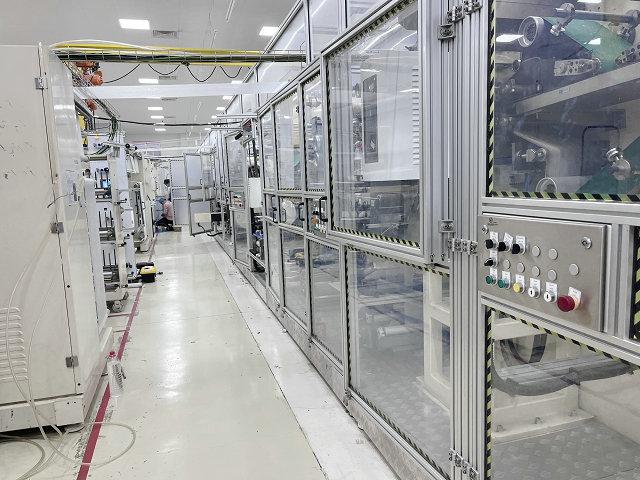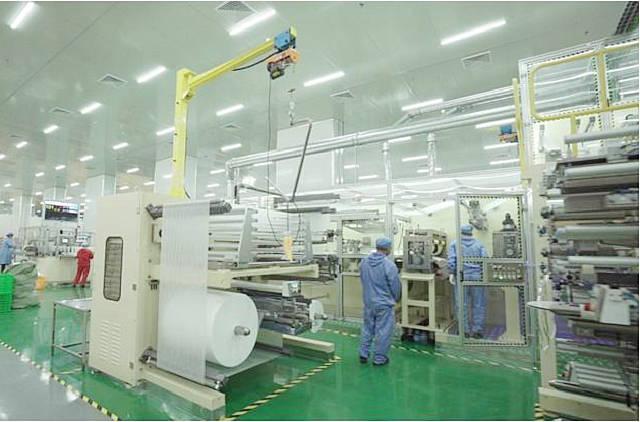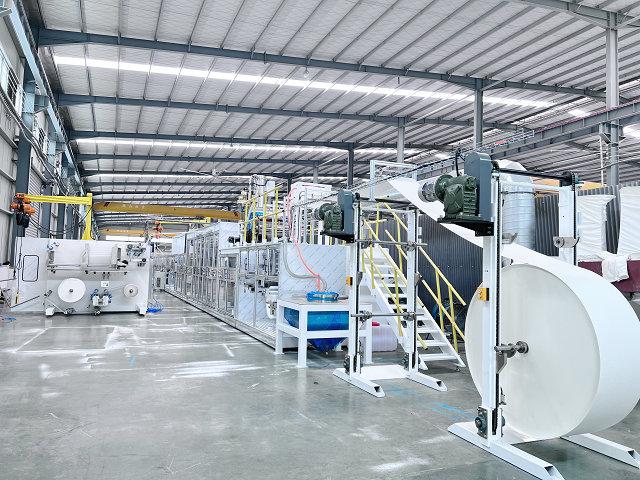Author:Haina Machinery Factory FROM:Diaper Machinery Manufacturer TIME:2024-11-18
The manufacturing of sanitary pads is a critical sector within the hygiene product industry, significantly impacting women's health and well-being. With the increasing awareness of health standards and consumer safety, health regulations for sanitary pad manufacturing have become more stringent. These regulations aim to ensure that products are safe, effective, and environmentally friendly. This article explores the various health regulations governing the manufacturing process of sanitary pads, covering aspects such as materials, production processes, quality control, and environmental considerations.
The first step in ensuring the safety and efficacy of sanitary pads is the regulation of materials used in their manufacturing. Manufacturers are required to use non-toxic, hypoallergenic materials to minimize the risk of allergic reactions and irritations. Common materials include cotton, rayon, and various absorbent polymers. Regulatory agencies often mandate that these materials undergo specific testing to ensure they meet health and safety standards, particularly regarding chemical composition and potential contaminants.
The production environment plays a crucial role in maintaining the quality of sanitary pads. Health regulations stipulate that manufacturing facilities must adhere to strict cleanliness and hygiene standards to prevent contamination. This includes regular sanitation of equipment and workspaces, as well as protocols for employee hygiene. Manufacturers are also required to implement Good Manufacturing Practices (GMP) which outline the necessary conditions and controls for producing sanitary products consistently and safely.
Quality control is a fundamental component of sanitary pad manufacturing, governed by several health regulations. Manufacturers must conduct rigorous testing at various stages of production, including raw material inspection, in-process testing, and final product evaluation. These tests assess factors such as absorbency, leakage prevention, and odor control. Regulatory bodies may require documentation of these tests to ensure compliance with established health standards. Moreover, any recalls due to safety concerns must be reported to authorities promptly, ensuring consumer safety remains a top priority.

Health regulations also encompass labeling requirements for sanitary pads. Labels must provide clear information regarding the product's ingredients, usage instructions, and any potential allergens. Transparency is crucial, as it empowers consumers to make informed choices about the products they use. Additionally, manufacturers are encouraged to include information on proper disposal methods to promote environmental sustainability.

As awareness of environmental issues grows, health regulations increasingly address the sustainability of sanitary pad manufacturing. Many regulatory agencies encourage or require the use of biodegradable materials and environmentally friendly production practices. Manufacturers are urged to minimize waste, reduce energy consumption, and consider the lifecycle impact of their products. This shift not only benefits the environment but also aligns with consumer demands for sustainable options.
To operate legally, sanitary pad manufacturers must comply with local and international regulations, often requiring certification from relevant health authorities. This process typically involves comprehensive audits and inspections to assess compliance with health and safety standards. Achieving certification not only validates a manufacturer’s commitment to quality and safety but also builds trust with consumers. Regular re-evaluations and updates to practices are necessary to maintain certification status.
While health regulations are essential for ensuring consumer safety, manufacturers often face challenges in compliance. The diverse nature of materials, varying regional regulations, and the need for continuous innovation can complicate adherence to standards. Additionally, smaller manufacturers may struggle with the financial and logistical burdens of meeting these regulations. However, overcoming these challenges is crucial for fostering a safe and reliable sanitary pad market.

Looking ahead, health regulations for sanitary pad manufacturing are likely to evolve in response to emerging technologies and consumer preferences. Innovations such as organic materials, advanced absorbent technologies, and eco-friendly packaging are influencing regulatory frameworks. As consumer demand for transparency and sustainability increases, regulatory agencies may implement more rigorous standards to address these trends, ensuring that both health and environmental considerations are prioritized.
In conclusion, health regulations for sanitary pad manufacturing play a vital role in safeguarding consumer health and promoting environmental sustainability. By regulating materials, production processes, and quality control measures, authorities can ensure that sanitary pads are safe and effective for consumers. As the industry evolves, maintaining compliance with these regulations will be essential for manufacturers to build trust and meet the growing demands for health-conscious and eco-friendly products. Ultimately, a commitment to high standards in sanitary pad manufacturing will benefit not only consumers but also the broader community and environment.
